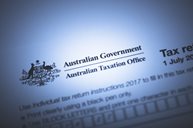Top Tax Tips For 5 Major Job Industries
With Tax Time now underway, now is a great time to take stock of all the money you've spent on work-related items during the course of the year. The question is, are you claiming everything you're entitled to? The general rule is that if you incur an expense as part of your job and aren't reimbursed by your employer, you can make a claim. Depending on what you do for a living, that can give rise to some unexpected deductions! Here are some of the things you may not know you can claim (plus a few things you can't claim) for five of the most popular professions.
Healthcare and social care
- If you're required to wear a uniform as part of your role, the cost is deductible.
- You can also claim a deduction for the cost of clothing that you use at work to protect your ordinary clothes from soiling or damage, for example, laboratory coats and aprons.
- If you need protective clothing, such as non-slip shoes, they are deductible.
- Claim for conference expenses. As well as the cost of the conference itself, that can also include travel, meals and accommodation costs – even where the conference is overseas, though you might need to apportion the costs (and disallow the private bit) if you spent some downtime on the beach afterwards!
- Claim for professional subscriptions, whether to a professional body like the AMA or to a trade union.
- If you're required to work overtime, you can claim for the cost of buying meals provided you have been paid an allowance by your employer.
- Agency costs: if you get your work through an agency, the cost is claimable.
- Many health care workers will need to use their own car as part of their job. That can include transporting patients, travelling between patient's homes or travel from one medical facility to another; all such journeys are potentially claimable.
Retail workers
- If you're required to wear a uniform at work, the cost is deductible. If you wear conventional clothing, the cost isn't deductible. Some retail workers in fashion stores are required to wear clothing from the particular store or brand they are employed by; but those garments are still classed as conventional clothing, so no deduction is available.
- If you spend time working from home – for instance preparing staff rosters at the weekend for the week ahead – you can claim a proportion of home running costs, either based on actual costs (in which case you'll need receipts) or at a standard rate of 70 cents per hour.
- Claim a deduction for the cost of any work-related courses. That could include health and safety or first aid courses, management training or job related courses such as a Cert III in retail.
- If you travel between stores, you can claim the cost of travel from one work location to another. That could include any time you spend temporarily working from a different store to your regular workplace (perhaps providing holiday cover) as well as trips between stores delivering stock
Professional and admin workers
- The cost of a handbag or briefcase is claimable if you need it for work purposes, such as carrying paperwork or a laptop. Be careful though; the ATO may query whether a Gucci handbag is really required as part of your job!
- You can't claim the cost of "conventional" clothing worn at work. That rules out suits and other business wear unfortunately, unless it is part of a compulsory uniform that is distinctive to your employer, or a non compulsory uniform that has been registered by your employer on the Register of Approved Occupational Clothing. Clothing specific to the legal profession, such as the robes and wigs worn in court by barristers, are deductible.
- Annual practicing certificates for professionals such as lawyers can be claimed.
- If you work from home (at weekends or in the evenings for instance) you can claim a deduction for home office expenses. Either claim 70 cents per hour or claim a proportion of your actual costs, such as internet, telephone, power and gas based on a diary of work use.
- If you travel as part of your work, you can claim the costs of your work-related journeys such as the cost of visiting clients or suppliers. If you use your own car, either claim 88 cents per business kilometre in the 2025 year (up to a maximum 5,000 kms) or keep a logbook and claim your actual expenses. You can also claim for parking, tolls and public transport.
- The cost of entertaining clients isn't tax deductible.
- Sadly, you can't claim the cost of club fees (such as the local golf or tennis club) even if you use your membership as a means of networking and meeting clients
- Your professional indemnity insurance costs are claimable
Education and training workers
- Annual teacher registration fees are deductible
- Claim the costs of references books or a professional library for the subject you teach
- Prizes that you purchase to reward the achievements of your students and encourage future performance are claimable
- Stationery, art materials, stopwatches and computer consumables including pens and toner cartridges are all deductible
- Depreciation on technology costing more than $300, like computers, laptops, tablets, mobile phones and printers (items less than $300 may be written off immediately)
- Teacher aids
- Conferences and courses linked to your teaching can be claimed, including associated costs such as travel and textbooks
- If you mark homework or prepare lessons whilst at home, you can claim home office expenses such as a proportion of internet costs and the associated costs of any technology you use such as computers and printers as well as a portion of utility bills, stationery and telephone. Alternatively, you can claim a set rate of 70 cents per hour for the number of hours you have worked from home to cover the cost of some of these expenses - such as power, gas, internet, telephone, stationery and computer consumables such as printer cartridges.
- If you pay for school excursions, such as sporting or camping trips, out of your own pocket and aren't reimbursed, the costs are claimable. This can include meals, transport and accommodation costs.
Construction & Manufacturing workers
- You can claim the cost of any tools or other work-related equipment that you're required to buy for your job. You can claim an immediate deduction for any tools costing up to $300. Anything more expensive than that needs to be depreciated over the life of the tool.
- You can also claim a tax deduction for the cost of insuring tools and interest charged on finance taken out to buy tools and equipment.
- You may be able to deduct your expenses for buying and maintaining your uniform if you're required to wear one and it has the businesses logo on it. "Ordinary" items of clothing like a plain khaki shirt that you could wear at another job or outside work would not qualify. A khaki shirt emblazoned with your employer's name would qualify. The cost or protective items such as helmets, ear muffs safety goggles, sunglasses, sun hats and sunscreen can also be claimed
- Trade union fees can be deducted.
- The cost of renewing any professional licences, registrations or subscriptions are claimable
- The cost of self-education courses run by a University or TAFE (such as an apprenticeship course at a technical college), or by a professional or industry organisation, as well as the cost of work related conferences and seminars and self-paced learning, provided the course relates to your current job.
- You can claim for overtime meal expenses up to the amount actually spent where you have received a genuine overtime meal allowance under an industrial law, award or agreement.
And finally:
COVID Related Expenses - for all Occupations
If you are an employee, sole trader or contractor and pay for the cost of COVID-19 tests -polymerase chain reaction (PCR) test or other tests in the Australian Register of Therapeutic Goods, including rapid antigen test (RAT) kits - for a work-related purpose, such as to determine if you can attend or remain at work, you can claim a deduction for the cost of these.You may be able to claim a deduction for the cost of buying face masks to wear at work if your employment duties require you and other employees to be at your place of work and you need to wear a mask as your duties bring you in close contact with other people including clients, customers and work colleagues. You may also be able to claim a deduction for other items of PPE such as gloves, santisers or antibacterial spray if your work duties bring you in close contact with clients or customers or involve you cleaning a premises.
Keep records! It doesn't matter what you've spent; if you can't prove that you spent it, you can't claim it. So, gather together all those receipts and invoices. If you've lost a receipt, try to get a copy from the retailer. If that fails, a bank or credit card statement might do if you can clearly identify the item. Don't try to claim if you don't have the paperwork; you're leaving yourself open to an ATO audit. The best way to ensure your return is correct and that you're maximising the deductions you're entitled to is to visit a tax agent like H&R Block. Best of all, if you get a tax agent to help you lodge your return, the cost is itself tax deductible.
Updated June 2025




.png?width=55&height=48&ext=.png)
-1.svg)

